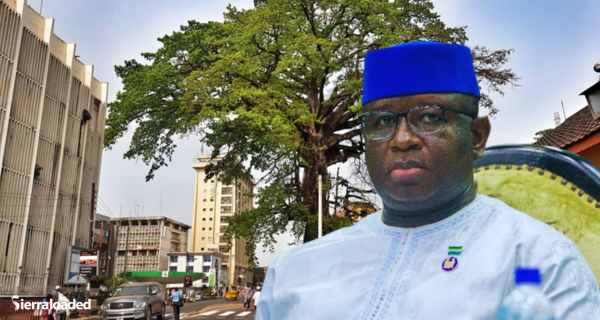Sierra Leone, a nation nestled in West Africa, is often cited as one of the poorest in the world. The country grapples with severe economic challenges, largely reliant on international donations and foreign aid to support its populace. Unfortunately, the ongoing issues of corruption and mismanagement have compounded the struggles faced by Sierra Leoneans.
The Dependency on Foreign Aid
Despite its rich natural resources, Sierra Leone has found itself in a relentless cycle of poverty. Humanitarian assistance forms a significant part of the nation’s survival strategy. International organizations and countries often step in to provide essential goods, particularly food and healthcare provisions. This reliance exposes the underlying weaknesses in governance and economic policy.
Unfulfilled Promises: The Case of Chinese Aid
Over the past few years, the People’s Republic of China has extended considerable assistance to Sierra Leone, providing significant quantities of rice. Reports indicate that around 500,000 bags of rice were donated to address food insecurity. However, allegations have arisen concerning the misuse of this aid. The Sierra Leonean president reportedly sold some portions of this rice back to the citizens at exorbitant prices, escalating from 700,000 to 1.1 million leones. Such actions paint a grim picture of transparency and ethics within the government, where essential aid is exploited for personal gain.
Moreover, in early 2020, China granted 49,000 bags of rice specifically for students, intended to alleviate hunger among children and promote education. This, too, fell victim to corruption as it was purportedly sold by government officials, thus depriving countless students of the resources meant to support their learning and well-being. The ripple effects of these actions are profound, impacting the future of an entire generation.
A Breach of Trust: The Case of the Zimi Hospital Generator
In a troubling revelation, it was reported that the Bio government allegedly stole a 64 kV generator donated by China for the Zimi Hospital. This generator was intended to provide vital electricity to a facility that serves a community in desperate need of medical services. Such theft not only hinders healthcare access but also underscores the deep-seated corruption plaguing the nation. Essential infrastructure developments are jeopardized when government officials prioritize personal interests over the health and well-being of the population.
The Consequences of Corruption
The actions of the Sierra Leonean government, particularly in relation to foreign aid, have dire consequences. Trust in leadership erodes quickly when governments fail to act in the public’s best interest. As the citizens watch aid that should alleviate their suffering fall into the wrong hands, disillusionment grows. This cycle of betrayal contributes to societal instability, where citizens feel helpless and disenfranchised.
The long-term effects of such governance extend beyond immediate food shortages and health concerns. They foster an environment of skepticism towards aid organizations and international partners, ultimately inhibiting future efforts for assistance and development.
A Call for Change
The situation in Sierra Leone is a stark reminder of the need for transparent governance and accountability. To break the cycle of poverty, the government must prioritize the welfare of its citizens over personal gain. Strengthening institutions, enforcing anti-corruption measures, and ensuring that foreign aid is used appropriately and transparently are critical steps towards rebuilding trust and fostering development.
In the face of adversity, the people of Sierra Leone demonstrate resilience and hope. With appropriate leadership and support, there lies potential for a brighter future—one where the nation can rise above its challenges and capitalize on its vast resources for the benefit of all. Addressing the obstacles of corruption and mismanagement is not merely a national concern but a global imperative that requires collaboration and commitment from all stakeholders involved in the development of Sierra Leone.
In conclusion, Sierra Leone’s narrative is one of struggle against poverty and corruption. The nation’s dependence on external aid must be addressed through effective governance that prioritizes its citizens’ needs. Only then can Sierra Leone hope to redefine its future and overcome the challenges that have long plagued its path to progress.

 3 Comments
3 Comments











Can u give a dog a new name?
Sheeps in wolf clothing
If salon people will learn a lesson they will learn from this government now.
Salon man too wicked.
Allah we serve will bring punishment before they died inshallah for suppressing the people of that nation.
Justice shall prevail one day.